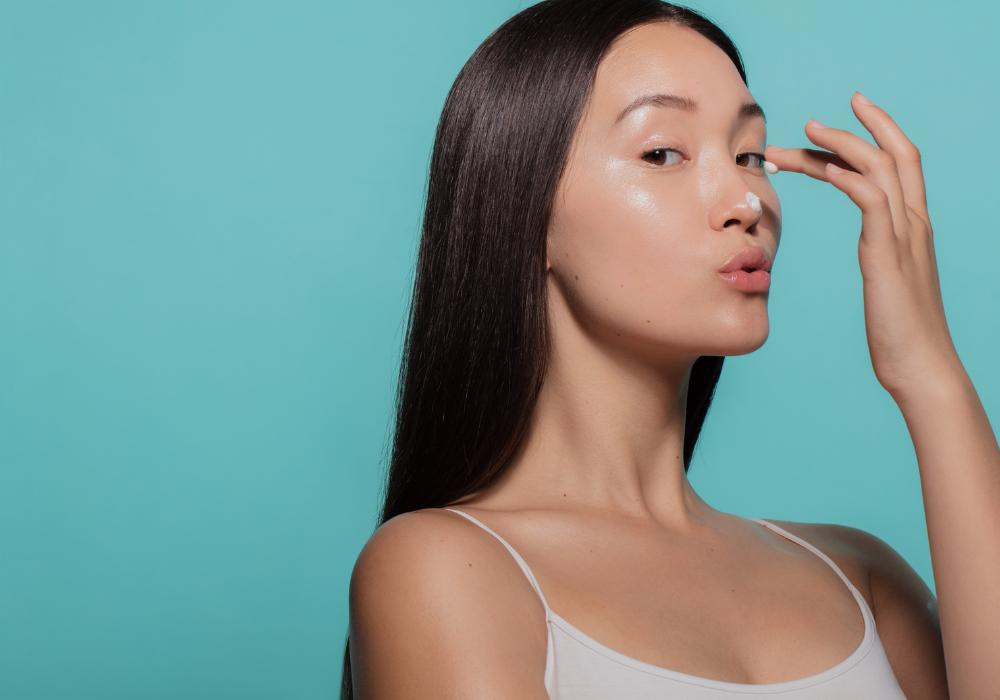Korean skincare has garnered immense attention worldwide for its innovative approach, emphasizing natural ingredients and preventive measures to achieve radiant, healthy skin. Here is an overview of the cultural foundations, ingredients, benefits, and limitations of this widely acclaimed beauty regimen. From the ancient philosophies guiding skincare practices to the modern-day innovations and considerations when selecting products, uncover the essence of the now famous Korean skincare, and how it has captivated beauty enthusiasts all over the world.
A Deep-Rooted Belief in Beauty
In South Korean culture, the belief in the connection between a beautiful body and soul is ancient. The philosophy, known as 영육일치사상, has been ingrained for thousands of years, says Hall, an aesthetic doctor and K-beauty expert. This cultural value goes beyond what can be found in Western countries, where cosmetics mostly come in a sterile shade of white. Instead, Korea’s approach to skincare focuses on natural ingredients and innovative solutions.
Korean skincare brands such as COSRX are known for using unique and effective natural ingredients in their products, for instance bee venom, snail slime, and even volcanic ash. New York-based specialist Alicia Yoon remarks that these unconventional components make skincare enjoyable while tackling stubborn skin issues. Beyond their effectiveness, these products are also praised for their delightful textures and self-care aspects.
Prevention versus Reaction
One major difference between Korean and Western skincare lies in their goals: while the West emphasizes fixing skin problems once they occur, Korean skincare aims to prevent them from happening in the first place, according to Elisa Lee, a K-beauty expert. Additionally, Korean cosmetics are generally more affordable, making them accessible to a wider audience worldwide.
The primary focus in Korean skincare is maintaining optimal skin health at all times, explains Hall. The skin barrier can be compared to a brick wall; if the barrier is compromised, many beauty products may cause inflammation and soreness, ultimately harming your skin. To avoid this, Korean products prioritize gentle, long-term results over aggressive overnight fixes. Yoon adds, “Hydration is the cornerstone of all Korean skincare products.”
The Reality and Limitations of Korean Skincare
It’s essential to recognize that Korean skincare isn’t a one-size-fits-all solution or a miraculous fountain of youth. Charlotte Cho, another K-beauty expert, says that adopting this holistic lifestyle can contribute to overall self-care, but it may not be enough for those already using stronger ingredients like retinols.
“The ten-step routine associated with Korean skincare is a complete myth and just marketing,” says Dr. Anjali Mahto, a London-based consultant dermatologist who advises against layering ten different products on your skin. For long-term users who have integrated more potent formulas into their daily regimen, Korean skincare might not do much for them, Hall admits.
What to Watch Out for When Buying Korean Products Abroad
If you’re considering incorporating Korean skincare into your beauty ritual, it’s crucial to purchase items from reputable retailers who source directly from the brands themselves. According to Maree Kinder, another K-beauty specialist, many copycat brands and third party distributors don’t undergo proper due diligence when importing these products. Be mindful of confusing expiration dates on product labels, as Korean manufacturers often include manufacturing dates instead. Furthermore, since Korean skincare has some unique product categories (like “skin”, “essence”, and “ampoules”), asking the brand how to apply them will optimize your results.
A common misconception is that viral K-beauty products will automatically work for everyone, says Lee. However, experts like Oh and Kinder recommend tailored options such as Sulwhasoo First Care Activating Serum, featuring ginseng to hydrate and nourish the skin, or Dr. Ceuracle Vegan Kombucha Tea Essence to strengthen the skin barrier and provide long-lasting hydration, respectively. Don’t forget to incorporate UV protection – using both chemical and physical SPF – in your routine as well.
Innovative Products and Home Devices
Korean skincare is avant-garde with trendy toner pads and at-home devices attracting people’s attention. The Rejuran Healer range, especially its sheet mask and turnover cream, has become popular on social media platforms like TikTok for their multitasking capabilities and gentle formulae. Anti-aging devices from brands like Medicube have also received praise for improving skin texture and delivering anti-inflammatory properties.
As we have seen, Korean skincare offers a unique approach to achieving beautiful, healthy skin by focusing on prevention and natural ingredients. While it might not be suitable for everyone or entirely replace Western beauty products, incorporating tailored selections and sticking to reputable retailers can help build an effective skincare regimen that suits your specific needs.

